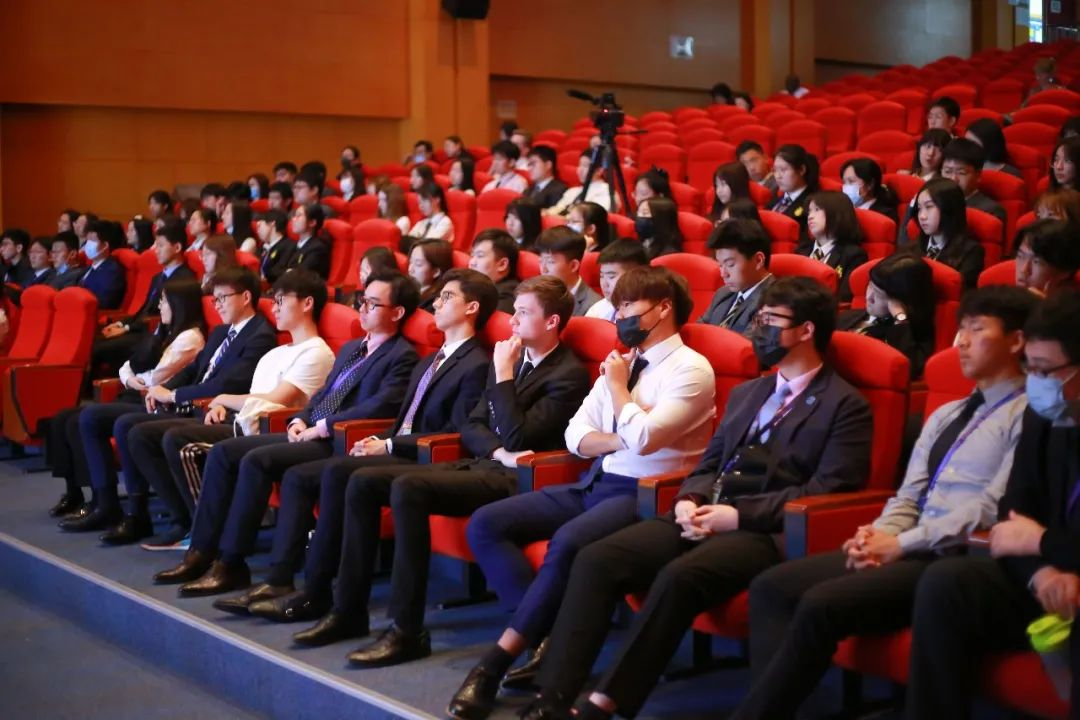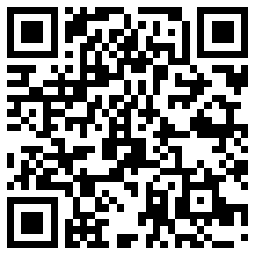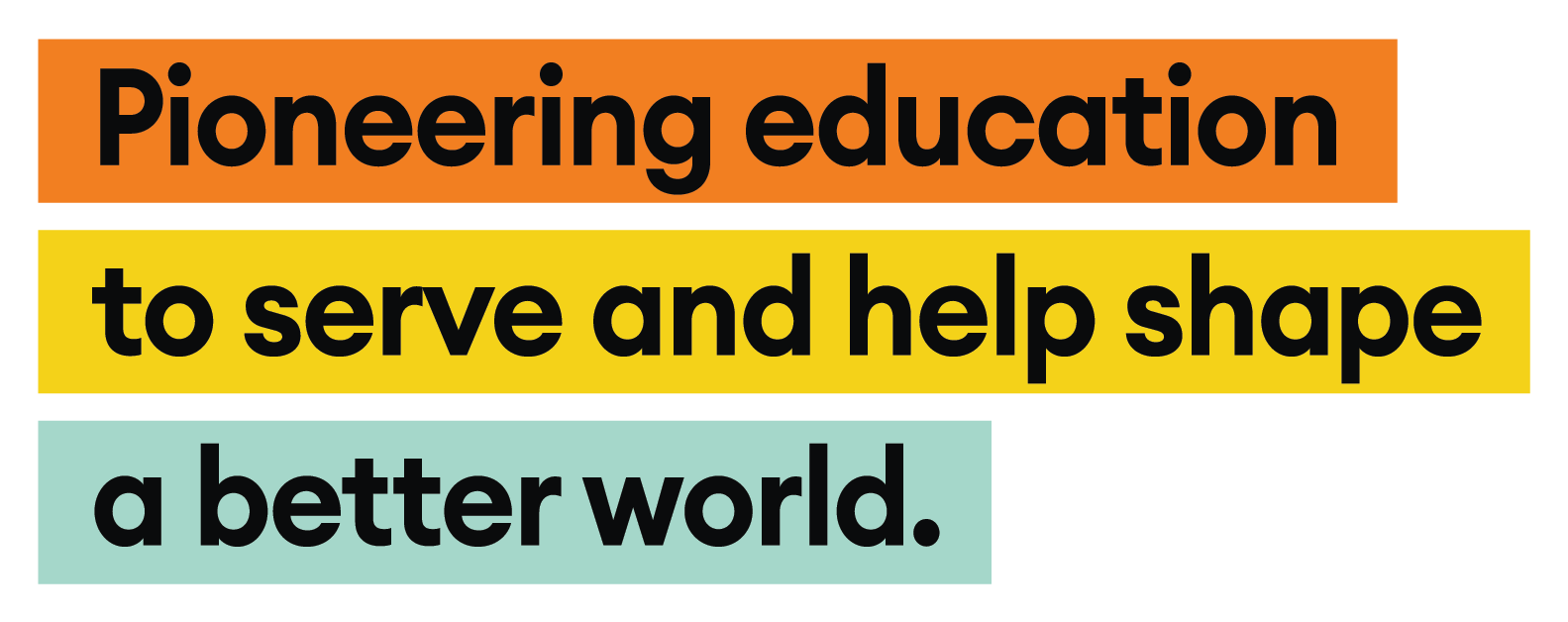Preparing our pupils for early university applications
Universities around the world invite early applications for many different reasons. In some cases, it enables the university to offer a dedicated scholarship. It also allows the candidate to show their commitment to a particular university or course. And in some cases, an early application is the only way to be eligible for a high-demand course or university. Whatever the case may be, at Wellington College Education (China), we prime our pupils for success with a comprehensive university guidance programme.
Approximately 450 universities, including most of the highest-ranked institutions, have Early Decision (ED) or Early Action (EA) plans, and some have both. The key aspect of an ED application is that any result is binding, a candidate will have to sign a contract confirming that they will attend that university if selected. An EA application, on the other hand, is non-binding.
Either way, the application process is notoriously complex. It will involve completing at least one essay. Most applicants must provide scores from standardised tests such as the SAT or ACT. US schools also place a lot of value on extra-curricular activities. Pupils are often even asked to submit additional work such as an art portfolio as evidence of other skills. In addition to all of this, applicants usually must also provide letters of recommendation from two teachers and a university guidance counsellor.

To ensure our pupils are prepared for all eventualities, our university guidance teams work closely with pupils, advising them on course selection in IGCSE and A-Level or IB and showing them how they can tailor their extra-curricular involvement to help support their plans. All schools also provide advice and guidance on US standardised tests. Wherever possible, schools are registered test centres for the SAT and ACT so that candidates can sit the exams on campus. We also help pupils adopt test preparation strategies that will not interfere with their core curriculum studies.

Our counsellors provide thorough feedback on candidates' personal essays and supplementals. They ensure that documents like recommendation letters paint a complete picture of a pupil's talents and accomplishments. Moreover, all candidates are shown how to research university courses and are advised on early application strategies to ensure they select a school that is the best fit for them.
As well as applying to Oxford for Biochemistry I applied ED to Dartmouth. On top of the general advice and guidance, I was given guidance about what strategy to adopt the school arranged for weekly SAT lessons to take place in school which were really beneficial and fun. I also got to sit the actual exam in school on the weekend. As part of my application, I attended an alumni interview with a former student from Dartmouth. The format was very conversational and was really about finding out who I was and what my outside interests were. The university guidance team arranged for a mock interview which helped me get a sense of what questions would be asked and how I could improve my responses.
John
Early Decision, Dartmouth
All UK university applications, including applications to Oxford and Cambridge, are made via a centralised application system, UCAS. A candidate can select up to five university/subject choices, but only one of either Oxford or Cambridge. These are supported by one personal statement written by the pupil and an academic reference written by their school. Any candidate wishing to apply to these prestigious ancient institutions must have their UCAS application with all five choices selected sent off by early October.

Although all UK applications are made on the same online application system, Oxbridge applications are more demanding. Most courses will require an extra assessment test, usually taken in November of their final academic year. Some will request additional work, like essays. Candidates will also need to undertake at least one admissions interview. These are conducted by academic representatives from the course the candidate has applied for. Currently, all Oxbridge interviews are conducted online – but the format and expectations remain the same. The schools are assessing the academic qualities of the candidate – how suitable they are for the course for which they have applied and whether or not they will be able to cope with the focused, individual small-group teaching style of both Oxford tutorials and Cambridge supervisions.

Wellington College Education (China) pupils who apply to Oxbridge are identified early on in their school career and provided with a dedicated programme to support their progress. This involves targeted academic enrichment that produces the kind of learning that would impress Oxbridge academics. Pupils are then shown how to evidence this academic learning within their personal statements. They get support in preparing for assessment tests through in-school assistance from teachers as well as a bespoke online programme by experts in the UK. Pupils who ultimately get called for an interview receive training that includes mock interviews both by school subject experts and online representatives in each subject area.
The school has provided lots of support. We were able to learn about a range of destinations at the school’s university fair and they even helped organise a trip to the Airbus Assembly Plant to support my application for Engineering. As I was applying to Cambridge, I attended a weekly Oxbridge prep session where I engaged in extra reading and research about the course which really helped me prepare for my interview. When it came to applying the university guidance team and subject teachers gave me really useful feedback on numerous drafts of my personal statements. I was also given support to help prepare for the Engineering admissions assessment (ENGAA) with a weekly online session including mock tests and feedback.
James
Early Application, Cambridge
Applications to UK medical schools must be sent off in early October or they are not considered. Strong personal statements not only must show evidence of the typical academic qualities but also personal attributes that are required of a medical doctor, such as empathy. Candidates must also provide evidence of experience in a medical setting – usually by providing a detailed account of time spent working in a hospital or care environment. On top of the exceptionally high academic grade requirements, medicine candidates to the UK usually must complete at least one of the additional medicine assessment tests, such as the UCAT and BMAT. Finally, all successful medicine applicants will have to undertake an interview. Many medical schools now adopt a Mini-Multiple-Interview (MMI) approach where candidates attend a gruelling number of short, timed stations.

We ensure that pupils pursuing medical school get the best possible advice, guidance and support. We help them develop the key areas of knowledge expected of UK medical pupils and advise them on strategies for selecting schools. Pupils get online assistance from UK experts in preparation for the UCAT and BMAT. Pupils are also taught how to craft their experiences into an outstanding personal statement. Moreover, 2021 marks the first year that we conducted a full eight-station mock MMI session to provide pupils with real-world experience with this challenging interview scenario.
The school’s university guidance team advised me early on about the correct IGCSEs and IB courses to take to support an application to medicine. They also gave me ideas about what extra-curriculars I could do that would allow me to demonstrate the type of key qualities wanted by medical schools. This led to me founding the school’s ‘First Aid Club’ through which I was able to demonstrate my commitment to medicine. I was able to include this within my personal statement with the university guidance team advising me on a number of drafts. The school also arranged for me to take an external course online to help me prepare for the UCAT, the main admissions test for medicine, and arranged for a mock interview practice with eight teachers running an MMI simulation.
Josh
UK Medicine Applicant
///
We understand the trust that parents place in us and we strive to ensure that pupils have the best opportunities possible to realise their ambitions. We wish all the best of luck to those pupils hearing about their university decisions in the coming weeks and months.
Hiba Academy Nantong
to be opened in September 2022
for more information
please scan the QR code:

Click here for our schools' past article
> Wellington College International Tianjin
> Wellington College Bilingual Tianjin A Level Centre
> Wellington College Bilingual Tianjin Nursery
> Wellington College International Shanghai











